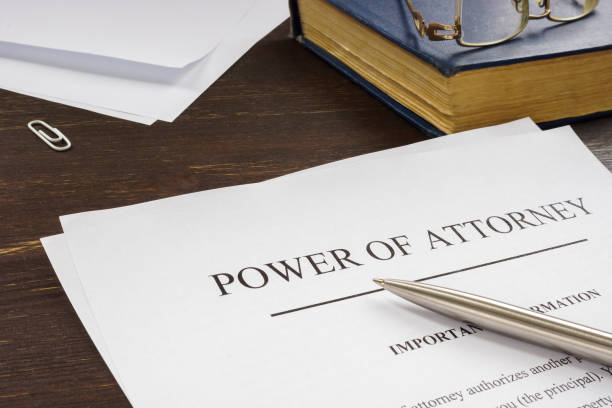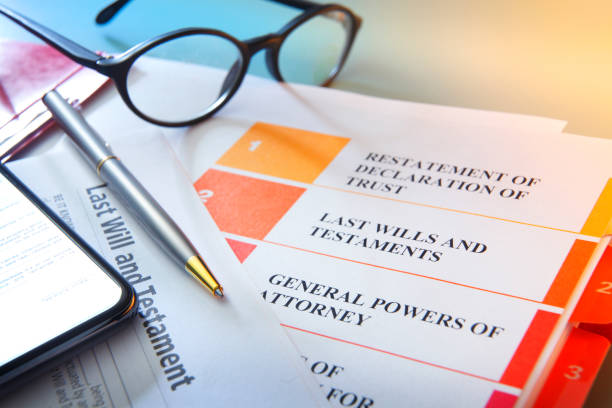Safeguarding Legal Integrity and Preventing Potential Misuse

Introduction
An agent is someone you choose to handle matters of importance that you are unable to decide on due to various circumstances. The power of attorney is what gives the agent his/her power, and needs to be officially notarised to make it more trustworthy, genuine and legally binding. This article will explain how it protects your interests and makes sure everything goes smoothly when others handle your affairs.
Why is Notarizing a Power of Attorney Important?
Notarizing a power of attorney is important for several reasons. Let’s delve into the key factors that highlight the significance of this legal process:

1. Ensuring Legitimacy and Credibility
Notarization adds an essential level of legitimacy and credibility to a power of attorney. When a document is notarized, it signifies that the signer’s identity has been verified, and they have willingly signed the document under oath. Notaries are impartial and independent individuals appointed by the state to oversee the signing of legal documents. Their presence and official seal lend credibility to the power of attorney, making it more likely to be recognized and respected by third parties.
2. Preventing Fraud and Unauthorised Use
By notarizing a power of attorney, you create a deterrent for potential fraudsters. The presence of a notary ensures that the document has been properly executed and that the person granting the power of attorney has the mental capacity to understand the consequences of their actions. Notarization reduces the risk of unauthorised use or abuse of the power of attorney, as it acts as a reliable method of verification.
3. Enhancing Document Acceptance and Portability
Notarized documents, including powers of attorney, are generally more readily accepted and honoured across state lines and even internationally. This is particularly important if you plan to use your power of attorney in another jurisdiction or country. The notary’s seal and signature provide assurance to institutions, organisations, and individuals that the document is valid and can be trusted.
4. Enabling Real Estate Transactions
Notarizing a power of attorney is especially important for real estate transactions. When granting a power of attorney for real estate purposes, it is essential to have it notarized to ensure its enforceability. Many real estate transactions, such as buying or selling property, require a power of attorney that is notarized to be considered valid.
5. Facilitating Financial and Business Transactions
A notarized power of attorney is indispensable for financial and business transactions. It allows your appointed agent to handle financial matters, sign contracts, access bank accounts, and make critical decisions on your behalf. Financial institutions and businesses often require notarized powers of attorney to safeguard their interests and ensure compliance with legal and ethical standards.
6. Meeting Legal Requirements
Different countries have different rules on how to deal with power of attorney and its notarisation. If these rules aren’t followed, the document’s validity might be questioned in court.
FAQs (Frequently Asked Questions)
Q1: Can I create a power of attorney without notarizing it?
Yes, you can create a power of attorney without notarizing it. However, notarization adds an extra layer of credibility, authenticity, and enforceability to the document. It is highly recommended to have your power of attorney notarized to ensure its validity and acceptance by third parties.
Q2: Can any notary public notarize a power of attorney?
In general, any authorised notary public can notarize a power of attorney. However, it’s important to ensure that the notary public you choose is legally authorised in your jurisdiction. Notary laws may vary from state to state or country to country, so it’s crucial to consult the relevant regulations.
Q3: Does a power of attorney need to be notarized for medical decisions?
The requirement for notarizing a power of attorney for medical decisions may vary depending on the jurisdiction. In some places, such as the United States, a specific type of power of attorney known as a medical power of attorney or health care power of attorney may need to be notarized. It is advisable to consult local laws or seek legal advice to determine the specific requirements in your area.
Q4: Is notarization necessary for durable powers of attorney?
Durable powers of attorney, which remain in effect even if the principal becomes incapacitated, often require notarization for added validity and enforceability. Notarization ensures that the document is properly executed and that the principal’s intentions are clearly expressed. Check the legal requirements in your jurisdiction to determine if notarization is necessary for durable powers of attorney.
Q5: What is the difference between a notarized power of attorney and a witnessed power of attorney?
A notarized power of attorney is one that has been signed in the presence of a notary public, who verifies the signer’s identity and administers an oath. On the other hand, a witnessed power of attorney is signed in the presence of witnesses who attest to the validity of the document but may not have the same level of legal authority as a notary. Notarization generally carries more weight and credibility in legal matters.
Q6: Can I notarize a power of attorney after it has been signed?
In most cases, a power of attorney must be notarized at the time of signing. After the document has been signed, it may not be possible to add notarization retroactively. It is crucial to consult local laws and regulations to determine the specific requirements and ensure compliance.
Conclusion
Getting your power of attorney notarised is a very crucial thing to do if you want to make sure your interests are safe and give your chosen person more authority. It makes sure that everything is legal, trustworthy and binding. It stops people from cheating, fraud or using your power of attorney without permission. No matter what situation you are dealing with, be it financial situations, health, or real estate, notarising a document adds an extra layer of protection.
